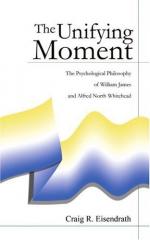|
This section contains 3,568 words (approx. 12 pages at 300 words per page) |

|
SOURCE: “Whitehead's Differences from Buddhism,” in Philosophy East and West, Vol. XXV, No. 4, October, 1975, pp. 407-13.
In the following essay, Hartshorne focuses on the differences between Whitehead's theories and Buddhist belief, particularly in relation to Whitehead's views on causal asymmetry.
Whitehead has profound points of agreement with Buddhism. It is almost harder to state the important differences than the aspects of agreement. This is the more remarkable in that evidences of actual influence of Buddhist works upon him are slight. For the Western thinker, as for the great Asiatic tradition, concrete entities are momentary, and change is successive creation of new entities, rather than successive changes in identical ones. On both sides the attenuation of the idea of genetic or personal identity is accompanied by a corresponding attenuation of the idea of nonidentity between persons or things. One is internally related to one's own past, but also to...
|
This section contains 3,568 words (approx. 12 pages at 300 words per page) |

|


